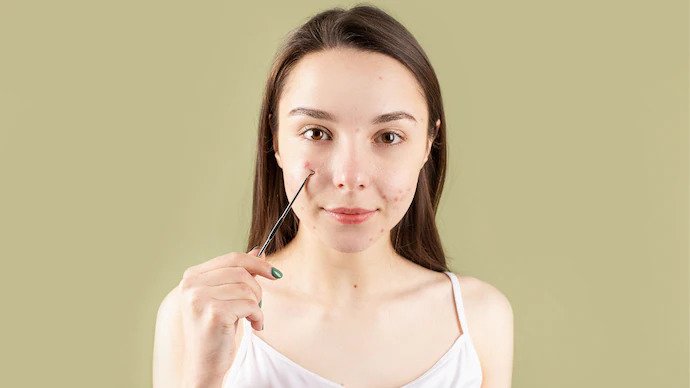Four tips to help fade away post-acne marks and dark spots

In Short
1. If you have acne, experts suggest it is better to treat it initially to avoid scars that become difficult to treat
2. Choose a sunscreen with moisturizing properties to avoid pigmentation
3. Depigmenting creams containing kojic acid and azelaic acid help fade away acne marks slowly
By Daphne Clarance: Acne is a common skin condition affecting almost 10 million people yearly. Typically, this skin condition is found in teenagers and young adults. However, people in their 30s, 40s and 50s may experience it for various reasons. Acne occurs when the hair follicles in the skin become plugged with oil and dead skin cells that result in whiteheads, blackheads and pimples.
Besides tampering with the skin, acne can also cause mental stress. Even with acne, marks are left behind, which can be equally frustrating for a person. Acne marks depend on the size of the lesion itself.
In the case of acne spots, it takes months or years to fade and sometimes, in some cases, the scars do not ever go away completely.
Dr. Prerna Sikka, Dermatologist and Cosmetologist Dr. Karishma’s Aesthetics, told IndiaToday that before treating post-acne scars or dark spots, one must understand the difference between acne marks and acne scars.
"The flat lesions or spots, usually red or brown, are what we label as PIH or post-inflammatory hyperpigmentation after acne. The good news is that these are easier to treat. Depigmenting creams containing ingredients like kojic acid, glycolic acid, azelaic acid, arbutin, vitamin C and hydroquinone are prescribed to help slowly fade these marks away. Along with creams, regular in-clinic chemical peels and exfoliation work wonders to help speed up the process of mark reduction," said Dr. Sikka.
On the other hand, scars are the pits left by acne, which cause "textural irregularities on the skin surface."
"These are more stubborn and require a host of modalities to treat. The reason for this is we require collagen remodeling to take place to see an improvement on the skin surface," she added.
Dermatologists often recommend initial chemical peels to treat scars, including fractional carbon dioxide lasers, micro-needling radiofrequency, PRP treatments, and subcision for deeper scarring.
"All these require close monitoring and multiple treatments spread out over 6-9 months. The number of laser sessions is usually a minimum of 3-4, each at an interval of 6 weeks. Visible results are usually seen after the 2nd or 3rd session. However, the overall improvement is never 100 percent. This is important to explain to patients initially so they do not harbor unrealistic expectations," said Dr. Sikka.
Dr. Manjot Marwah, Dermatologist and Hair Transplant Surgeon, Consultant and Director at Dr. Manjot’s Clinic, said that the pigmented ones can be faded. In contrast, with the hollow ones, it is best to "prevent not getting them in the first place because they are difficult to treat."
Four tips to fade away acne spots:
LAYER YOUR ACTIVES
While choosing what actives to add to their skincare, one must add a strong vitamin A after consulting a dermatologist. Choose a higher percentage of azelaic acid or tretinoin gel as a spot treatment on the acne spots just for 2 hours in the evening, wash it off, and apply your regular skincare routine with glycolic or salicylic acid serums after that.
TREAT FROM THE BEGINNING
"I call them trigger spots," said Dr. Marwah, adding that when acne subsides, it initially leaves a reddish mark on the skin. But if treated at this stage, there is a lesser chance of pigmentation or scarring. This is healing skin and needs mild moisturization and sun protection.
RIGHT SUNSCREEN
You can choose a sunscreen with moisturizing properties so that you don't need to use an additional moisturizer afterward. This helps avoid pigmentation.
SILICON
A wound-healing silicon gel can help soften the hollow scars in the initial stages. It should ideally be used less in quantity but multiple times during the day.
If you have acne, experts suggest it is better to treat it initially to avoid pits or lesions that become difficult to treat. "Don’t ignore and take your acne lightly. Prevention is better than cure, so treat your acne promptly to avoid distressing post-acne complications," said Dr. Sikka.
The content published on the website is for creating awareness and educating purposes only. This shall not be considered as a substitute for professional advice or prescription. The results mentioned on the website may vary from person to person as each case is different.

